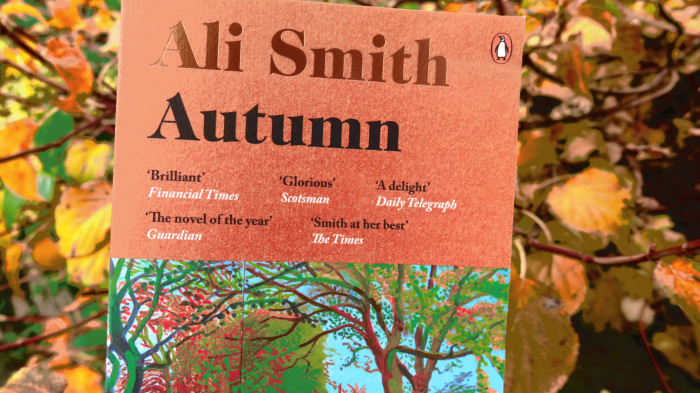 So how do we ever know what’s true? Elisabeth said. Now you’re talking, said Daniel.
So how do we ever know what’s true? Elisabeth said. Now you’re talking, said Daniel.
Elisabeth (teenage girl) and Daniel (elderly man) are discussing Goldilocks (an exchange which comes, by the way, with Ali Smith’s trademark absence of inverted commas). In Daniel’s version of the story, Goldilocks is a vandal who has broken in and spray-painted the bears’ home. As he says: ‘Whoever makes up the story makes up the world.’ Autumn is a Brexit novel, a story about splits: between different opinions, different lives, between reality and fantasy, lies and truth, and so on. There are two main characters: the 100-year old Daniel Gluck and his former neighbour, Elisabeth Demand (in her thirties by the time most of the action, including the leave/remain referendum itself, takes place), who regularly visits him in his care home. Time is elided, sections and even sentences slipping between periods as Smith pulls together themes of death, disappointment, hope and loss. Autumn is less formally experimental than Smith’s last, mystifyingly-garlanded, novel How To Be Both and is a far better book as a result. It retains elements of fable but roots them in a single, definable event. Her writing – pinned to something real, something specific – serves the story in Autumn far better than it did in, say, There But For The. As part of the story, Smith also turns her off-kilter lens on fascinating real-life characters, such as Pauline Boty and Christine Keeler. When she’s on form, you get a lot for your money: her view of the world is thrillingly different. ‘Time lapse of a million billion flowers opening their heads…’ begins a short section which moves the story on 20 years: buds become leaves, which fall and rot before we see ‘a million billion twigs splitting into a million billion brand new buds’. Autumn is not as good as Smith’s own The Accidental – but as I have said loudly before to anyone who will listen, Very Few Books Are As Good As The Accidental. There is a dreamlike quality to her prose, which means that there could be a danger the reader floats past the words. But they are always worth lingering on. Smith is peculiarly talented.
Advertisements Share this:




